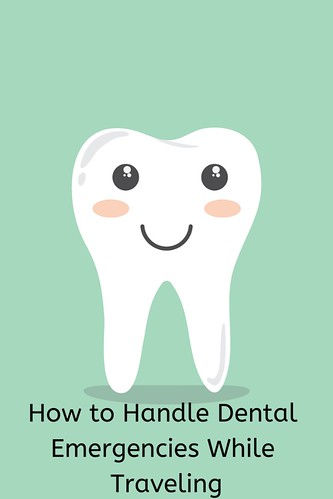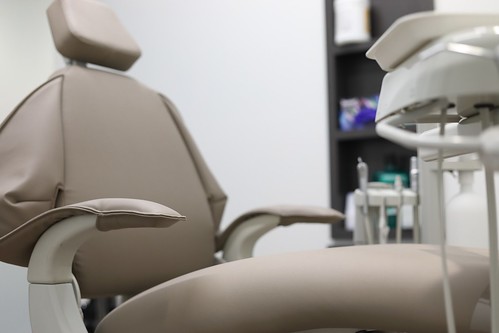How to Handle Dental Emergencies While Traveling
Submitted by Bert Maxwell on Wed, 01/16/2019 - 01:23
There are few things that can ruin a trip faster than dental problems. Countless patients have asked me what do in the event of a dental emergency when they’re out of town; and many more will continue to do so. Dental emergencies don’t wait for when it’s convenient for you, and can be some of the worst and most frustrating problems to deal with. Dental emergencies come in all sorts of different issues, from simple toothaches, losing a filling, chipping teeth, or even having a tooth completely knocked out. On their own, these problems can be stressful but become that much more when they happen while you’re out of town.

Prevention
The first step is always to reduce the chances of emergencies as much as possible, and that starts with prevention. Most dental problems are caused by poor hygiene or improper technique. Preventing problems abroad starts with a good routine at home.
Another big part is also simply understanding your own dental health. If you know you’ve had dental problems in the past, it’s a good idea to get a pre-trip checkup to make sure everything is in order. Also, make sure any pending treatments are taken care of before you leave to prevent any issues during the trip. Skipping getting that cavity filled can come back to bite you when it starts to hurt and ruins your vacation.
Lastly, make sure you’re up to date on your immunizations. Things like Hepatitis B might not be vaccinated for abroad, and that’s certainly not something you want to contract. Be aware that some disease have month long immunization schedules, so plan accordingly.
What To Do In an Emergency
Even with all the care in the world accidents and emergencies still happen. Being prepared ahead of time can not only make the situation more manageable but can also be the difference in potentially saving your teeth.
Toothache
Start by washing your mouth with warm water, and gently flossing to remove any debris. Over the counter oral pain relievers can be used if a dentist is unavailable and the pain is only mild. If the pain persists, see a dentist for a proper diagnosis. It may be necessary to perform an emergency tooth extraction for a damaged tooth.
Chipped Tooth
A chipped or broken tooth is a serious issue, and the affected should visit a dentist as soon as possible. In the meantime, start by washing your mouth with warm water. Then use cold compresses on the area; this should both help with the swelling as well as any pain.
Tooth Knocked Out
One of the most serious issues, is if you get your tooth knocked out completely. You’ll need to see a dentist right away; the sooner you do so the more likely you are to save the tooth. If you can, hold the tooth in its socket. If you can’t, put the tooth in a cup of milk. This helps preserve the tooth and gives you a but more time to reach a dentist. In either case, your time is very limited if you want to be able to save the tooth.
While In Another Country
While outside the United States, thankfully, many countries have excellent dental programs. Many developed countries have comparable service the United States, so there’s little to worry about when visiting one. Even in less developed countries, the quality of care is still quite good, and prepping a little can make the experience a pleasant one.
Travel Insurance
For those particularly concerned, traveler’s insurance is a good option that can not only help shoulder the cost, but also provide in getting quality service. Many travel insurance agencies will offer recommendations for good dentists, as well as potentially providing translation assistance. With a 24-hour hotline, most agencies can help at all hours of the day.
Good Travel Hygiene
I always stress that the most important part of oral health starts at home, and during travel this is only more important. I can’t say it enough but if you take good care of your teeth, they will treat you back in kind. The best way to deal with dental emergencies abroad is to stop them before they happen. Don’t let the fun and excitement of your trip keep you from proper cleaning each and every day.
Take a look at the Organization for Safety and Asepsis Procedures website (osap.org). They have a traveler’s guide to safe dental care that includes a checklist for safe dental treatment abroad. The American Dental Association (ADA.org) also offers some tips on their website for travel tips for your teeth.
Diet
Lastly, consider changes in diet you might experience when traveling. This is especially true when in an unfamiliar country with different cuisine. For most people this will likely not be an issue, but for those who have prior problems it’s something to keep in mind. Your diet plays a large role in oral health and keeping it in check is a big step to prevent many problems.
Dental Emergencies When Traveling
Travel is already stressful, and adding a dental emergency makes it all that much more so. Making sure you’re prepared is the key to both preventing issues, as well as dealing with them should they arise. All dentists will tell you that keeping up good oral hygiene goes a long way. Keep all this in mind when you’re traveling and keep dental issues out of your mind.

Dr. Greg Grillo is a 1995 University of Washington School of Dentistry graduate who has been practicing in North Central Washington for 17 years.
-

- Log in to post comments



















